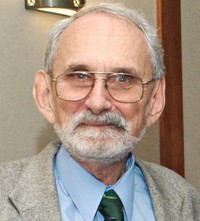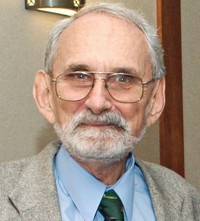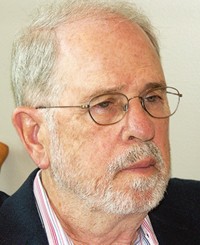Advertisement
Grab your lab coat. Let's get started
Welcome!
Welcome!
Create an account below to get 6 C&EN articles per month, receive newsletters and more - all free.
It seems this is your first time logging in online. Please enter the following information to continue.
As an ACS member you automatically get access to this site. All we need is few more details to create your reading experience.
Not you? Sign in with a different account.
Not you? Sign in with a different account.
ERROR 1
ERROR 1
ERROR 2
ERROR 2
ERROR 2
ERROR 2
ERROR 2
Password and Confirm password must match.
If you have an ACS member number, please enter it here so we can link this account to your membership. (optional)
ERROR 2
ACS values your privacy. By submitting your information, you are gaining access to C&EN and subscribing to our weekly newsletter. We use the information you provide to make your reading experience better, and we will never sell your data to third party members.
People
Nobel Laureate Richard Smalley Dead at 62
Codiscoverer of C60, a new form of carbon, did much to advance nanotechnology
by Ron Dagani
October 31, 2005
| A version of this story appeared in
Volume 83, Issue 44
Richard E. Smalley, a giant in the field of nanotechnology who was recognized by numerous awards, including the 1996 Nobel Prize in Chemistry for the discovery of fullerenes, died on Oct. 28 after a seven-year battle with leukemia. He was 62.
Smalley was a professor of chemistry and of physics at Rice University and founding director of the universitys Center for Nanoscale Science & Technology.
He shared the Nobel Prize with fellow Rice chemist Robert F. Curl Jr. and British chemist Sir Harold W. Kroto for their discovery of buckminsterfullerene (buckyball), a new form of carbon. The discovery of this 60-carbon molecule inaugurated a new realm of research that led to the discovery, in a different lab, of carbon nanotubes—tubular fullerenes that became the focus of Smalleys research efforts.
Smalley considered nanotubes to be a wondrous material that could help humanity achieve some of its most challenging goals, such as the quest for clean, inexpensive energy. In 2000, he helped found Carbon Nanotechnologies Inc. to commercialize his nanotube discoveries for the benefit of society.
Smalley also became a peripatetic spokesman for nanotechnology, crisscrossing the country to give speeches, testify before Congress, and meet with government, academic, and industrial leaders. In 1999, for example, he supported the National Nanotechnology Initiative and is credited with playing a crucial role in getting it approved by Congress. Federal spending for this sweeping R&D program is topping $1 billion this year.
Smalleys scientific colleagues remember him for his intensity, focus, and passion for science. His mind was like a searchlight bringing whatever it looked at into clarity, Curl says. He was such a fighter that until the last few days, I believed he would beat the cancer, just as he succeeded in beating all technical problems.
Rice President David Leebron says, We will miss Ricks brilliance, commitment, energy, enthusiasm, and humanity. He epitomized what we value at Rice:pathbreaking research, commitment to teaching, and contribution to the betterment of our world.






Join the conversation
Contact the reporter
Submit a Letter to the Editor for publication
Engage with us on Twitter